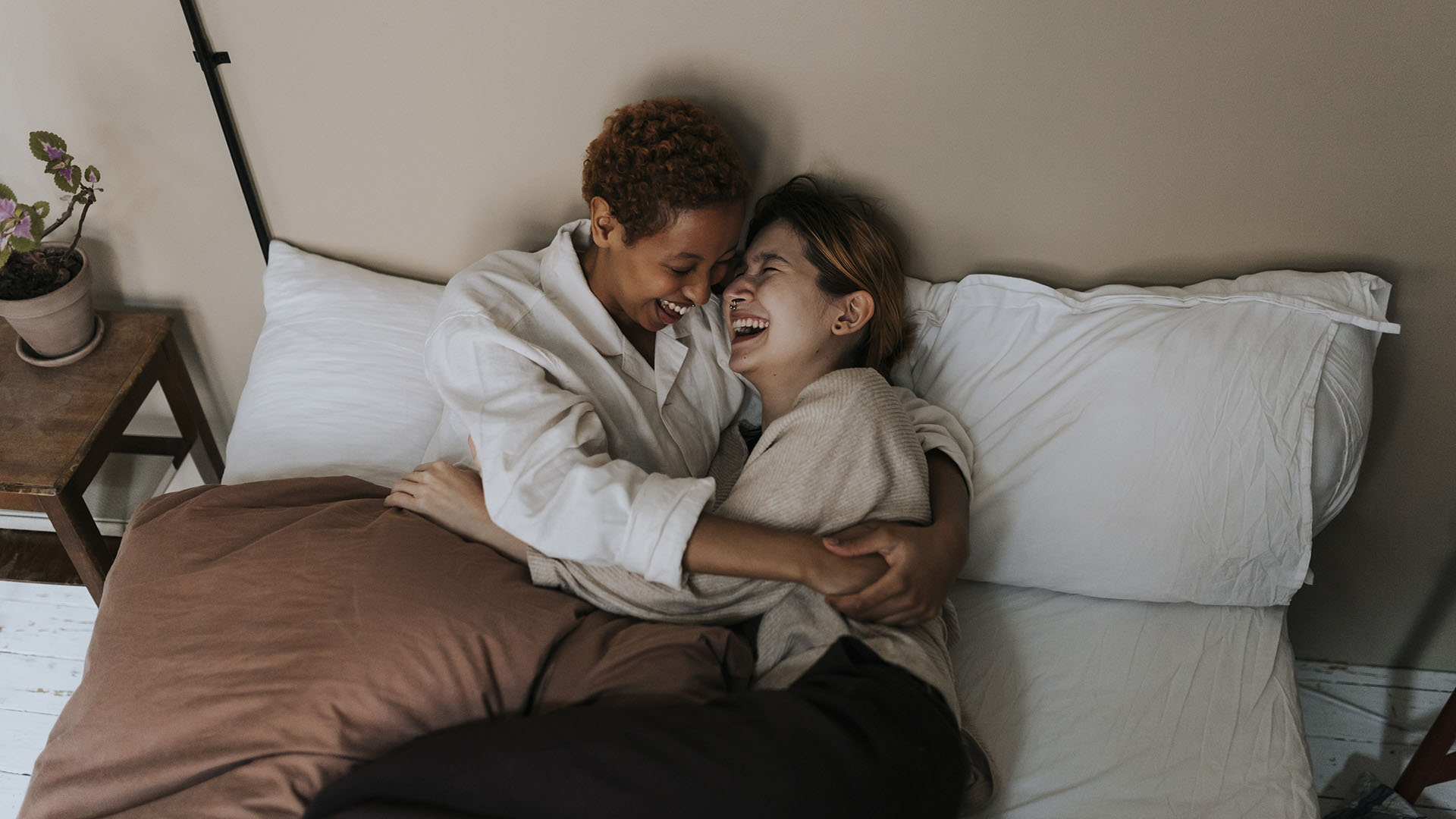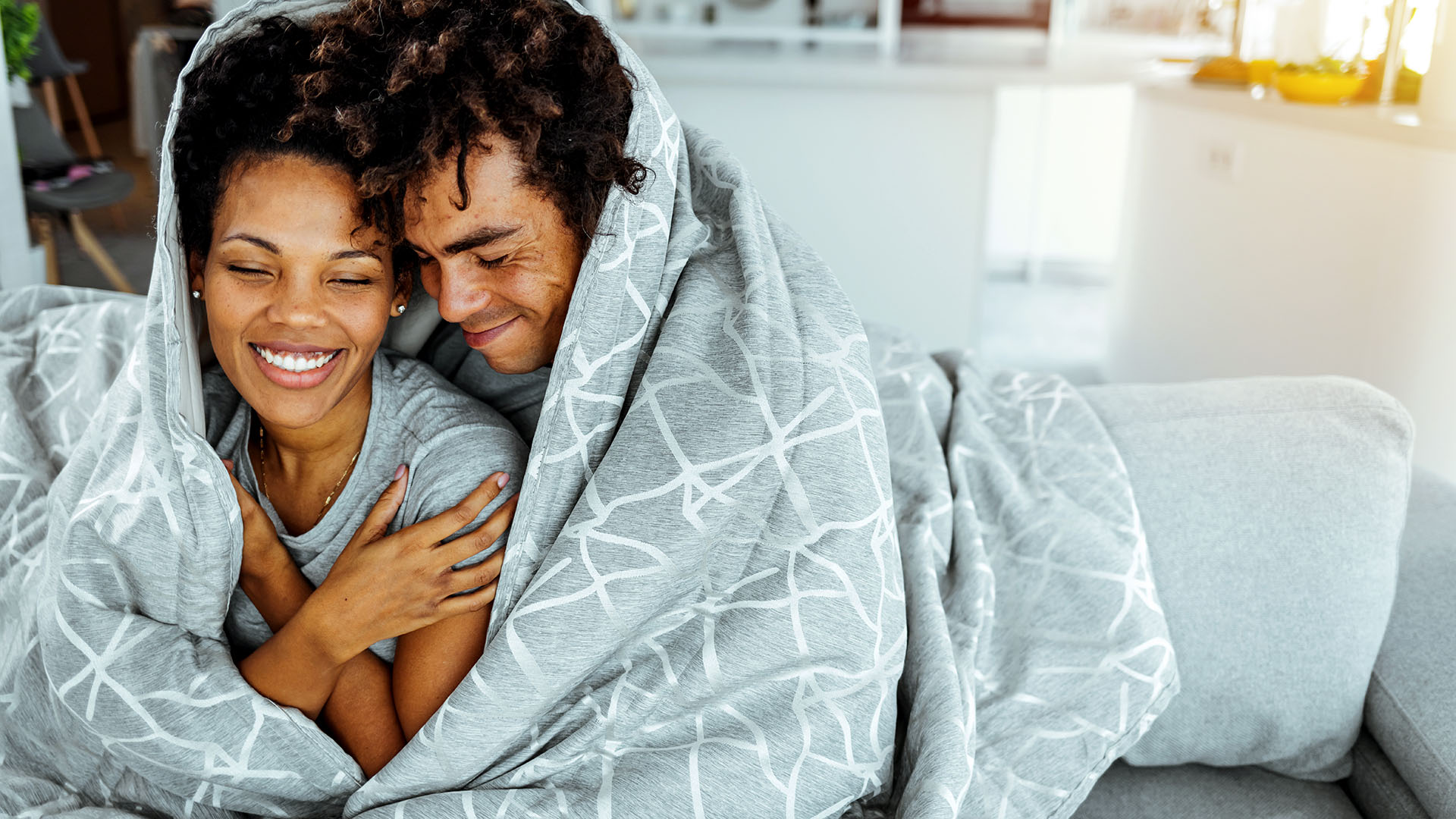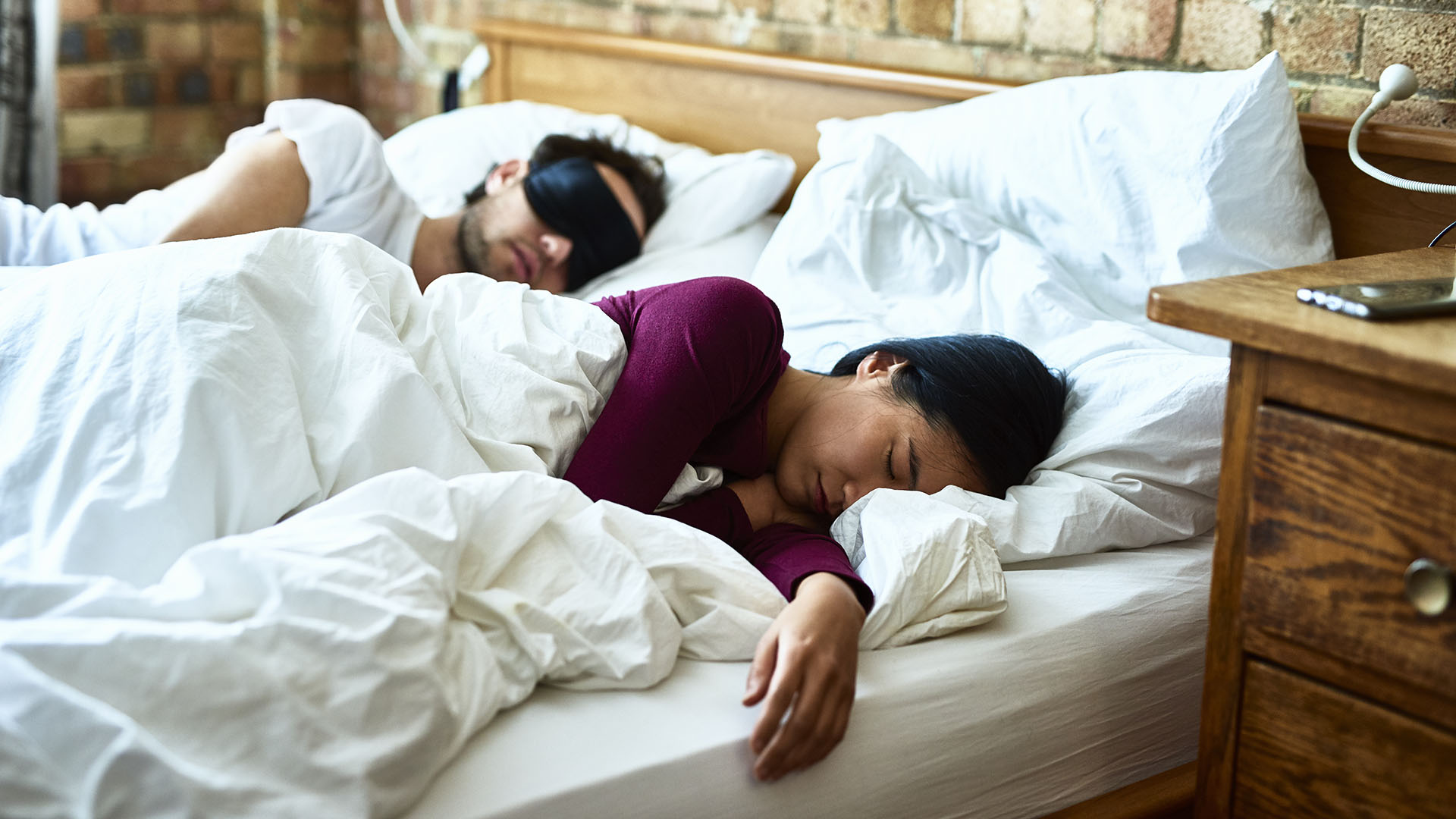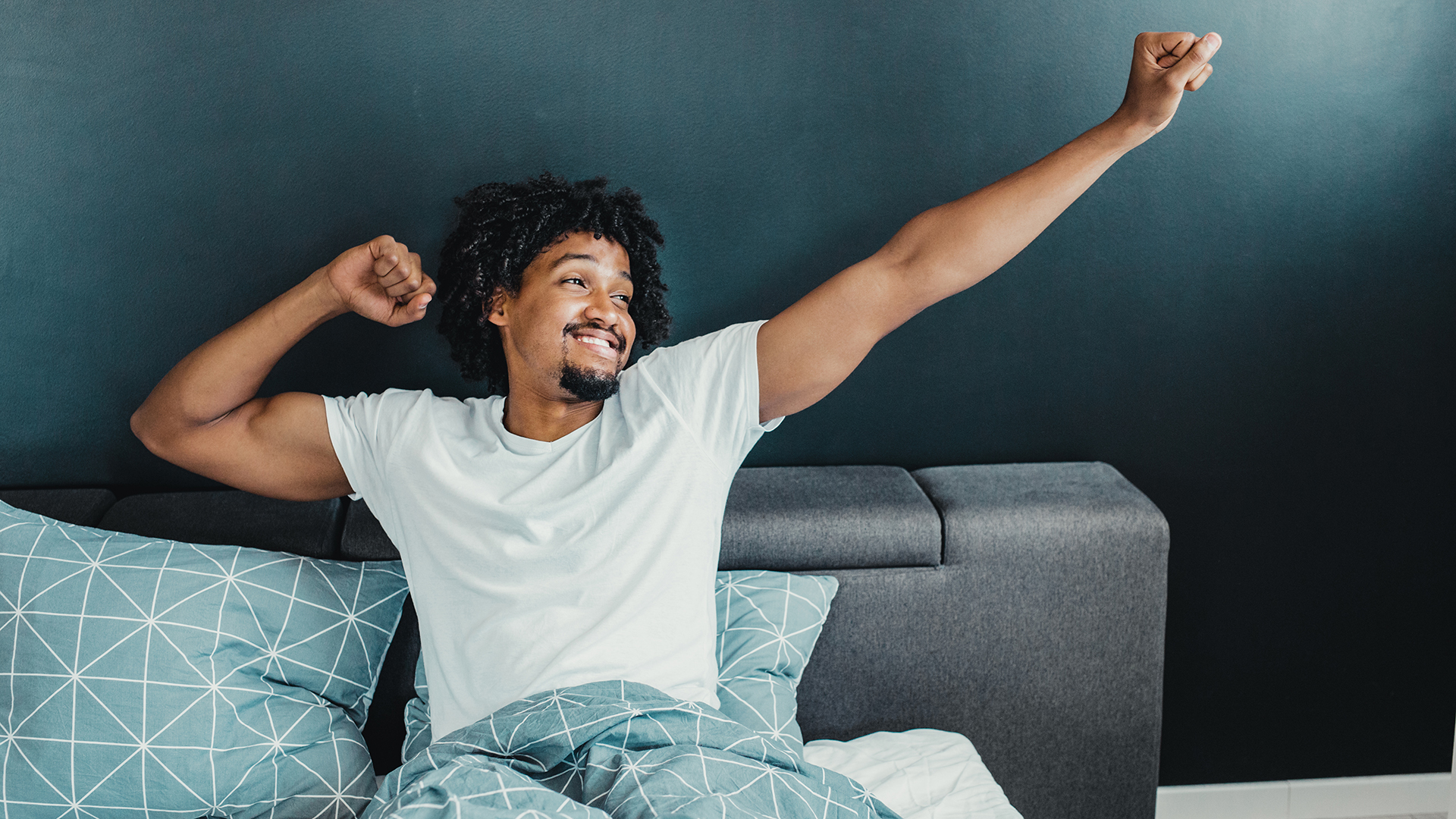Sleep divorce – the secret to a dreamy relationship or a nightmare for intimacy? Here’s what an expert has to say
But who gets custody of the pillows?

Sleeping on the sofa has never been so fashionable – at least, according to TikTok, which has made sleep divorce one of the biggest wellness trends of the past year, with no signs of slowing down. Sleep divorce is when couples actively choose to sleep in separate beds, and although it might not sound romantic, even experts think it might have benefits for your relationship.
“Sleep divorce is definitely something you can consider to improve your overall sleep health.” says Dr Hana Patel, sleep expert at Time4Sleep. So, is it time to invest in one of our best mattresses – times two? Maybe, but there are a few other options you might want to consider before bringing the spare room into play.
“Studies have shown that sleeping with your partner has benefits too. In fact, sleeping with your partner is proven to make you feel calm," explains Dr Patel. Before you jump into bed with sleep divorce, here's what you need to know about the trend.
What is sleep divorce?
Sleep divorce describes when a couple decides to sleep in separate beds while remaining in a relationship. It might sound like the first step towards actual divorce, but many couples have found sleep divorce can strengthen their relationship. It helps both parties enjoy a solid night’s sleep, so they won't get angry at the other person for keeping them awake.

Sleep divorce didn’t originate on TikTok, but the app has helped the trend take off. TikTok is home to some, let’s say, contentious wellness advice – trends like mouth taping and bed rotting are well meaning yet ill-advised, but the 10-3-2-1-0 sleep method could be a smart way to restructure your routine for consistently better sleep.
When it comes to sleep divorce, TikTok might be onto something – but it isn't the only way couples can optimize their sleep setup for better rest.
Why are couples considering sleep divorce?
Lying awake staring at the ceiling while your partner snores incessantly is hardly going to foster goodwill. Sleep divorce allows you to sleep the way you want. With no one else’s annoying habits keeping you awake.
“[Sleep divorce] helps to make your own sleep more personalized,” explains Dr Patel. “Better, more restful sleep can be attained by removing disruptions such as snoring, tossing and turning, or differences in sleep preferences among individuals.”
Get daily insight, inspiration and deals in your inbox
Sign up for breaking news, reviews, opinion, top tech deals, and more.
And when you’re well rested, you’re less likely to snap at your partner for forgetting to take the trash out. Studies indicate that good sleep can improve conflict resolution, while a bad mood from a lack of sleep can be a breeding ground for arguments.

If you are considering sleep divorce, make room for some togetherness in your bedtime routine. “It’s important to make time for intimacy before you fall asleep, as sleep divorce can have a negative impact on your relationship,” explains Dr Patel.
3 sleep divorce alternatives
Before you banish your boyfriend to the guest bed, there are a few less extreme alternatives to sleep divorce worth considering. First and foremost – keeping your partner in your bed. While their snoring might be driving you to madness, sharing a bed with a loved one does have its own benefits. A study from 2022 found those who shared a bed with a partner actually reported better rest than those who slept alone.
While the study doesn’t explore the reasons behind this bed-sharing boost, it might be that you're feeling the effects of the cuddle hormone (otherwise known as oxytocin). Oxytocin is responsible for that warm feeling we get when we fall in love, and that contentment is ideal for helping you drift off. Of course, it’s worth noting that you don’t have to hug a partner to trigger the release of oxytocin; a weighted blanket or time with a pet can have a similar effect.
1. Scandinavian sleep method
The Scandinavian sleep method takes a similar but less drastic approach to sleep divorce: instead of separate beds, couples use separate bedding. “Before you settle on sleep divorce, there are other things you can try, such as the Scandinavian sleep method – this involves couples sleeping in the same bed but using two separate duvets or blankets. Two blankets can help eliminate sleep issues associated with body temperatures as well as tossing and turning."

2. A bigger mattress
Are your partner's elbows constantly encroaching on your side of the bed? While buying a bigger mattress might not be the cheapest solution, your sleep (and your relationship) might thank you for investing in one of the best king size mattresses. Couples can benefit from a king size mattress, as those extra inches provide room for you both to stretch out. If you're in the UK, you might even want to consider a super king – we've broken down the differences between the US and UK king size mattresses here.
3. A split bed
Split mattresses are a slightly more romantic solution to sleep divorce. Typically available in king size or California king size, split mattresses are essentially two mattresses that share a bed frame. Because the sleep surfaces are separated, they provide incredible motion isolation – when your partner moves, you shouldn't be able to feel it. Perfect if your partner tosses and turns, or if you have different sleep chronotypes. Check out our guide to UK vs US mattress sizes, to see all your bedding options.

Ruth is TechRadar’s Sleep Writer. She’s here to help you find the perfect sleep setup for your budget and personal preferences. As well as keeping a keen eye on everything that’s going on in the world of mattresses, she regularly speaks to experts to help you learn how to improve your sleep habits, whether that’s by debunking sleep myths or explaining the science behind it all. Prior to joining the TechRadar team, she wrote features and product guides for new parents hoping to get a decent night's sleep, as well as writing for a variety of online spaces.